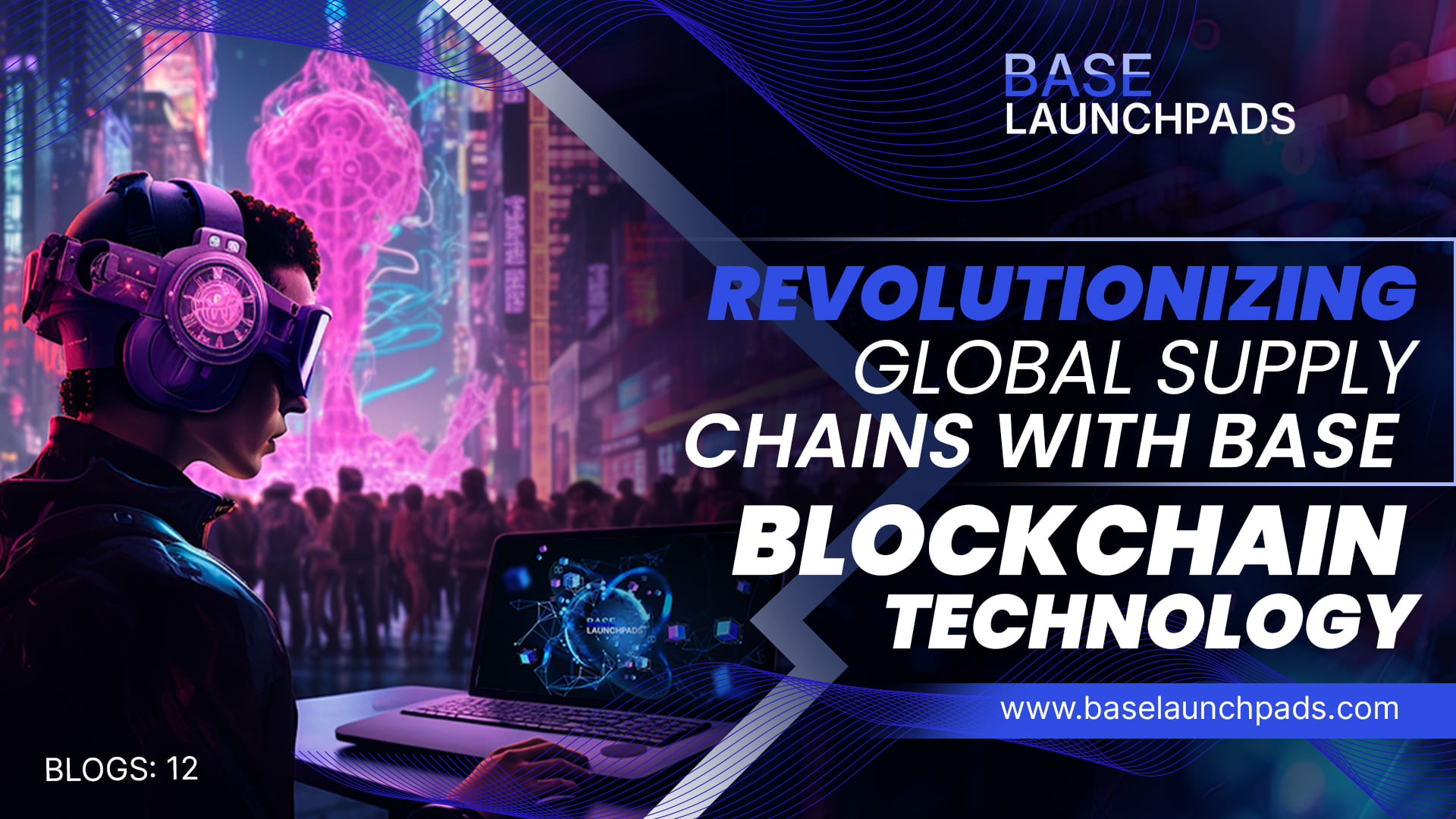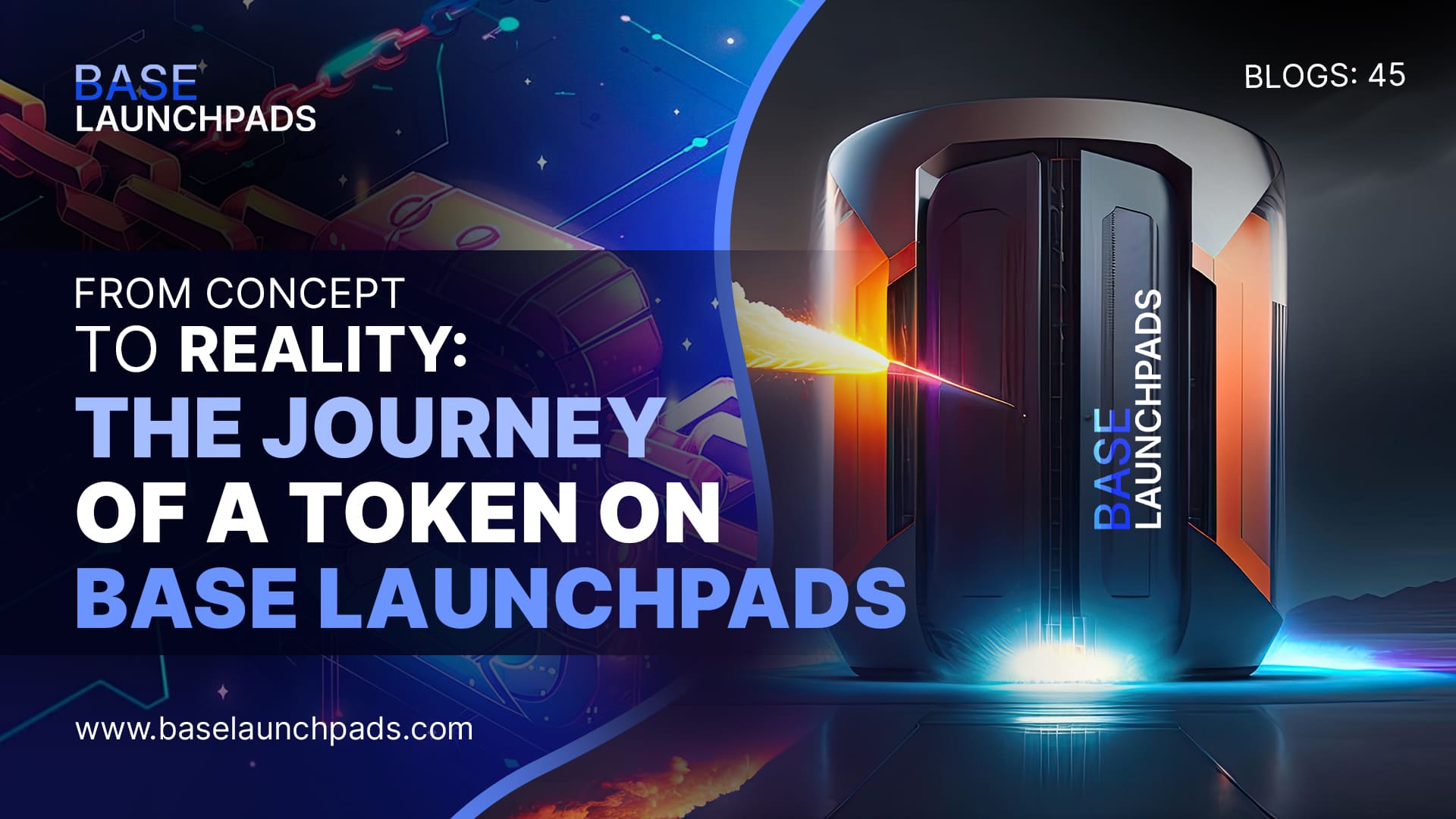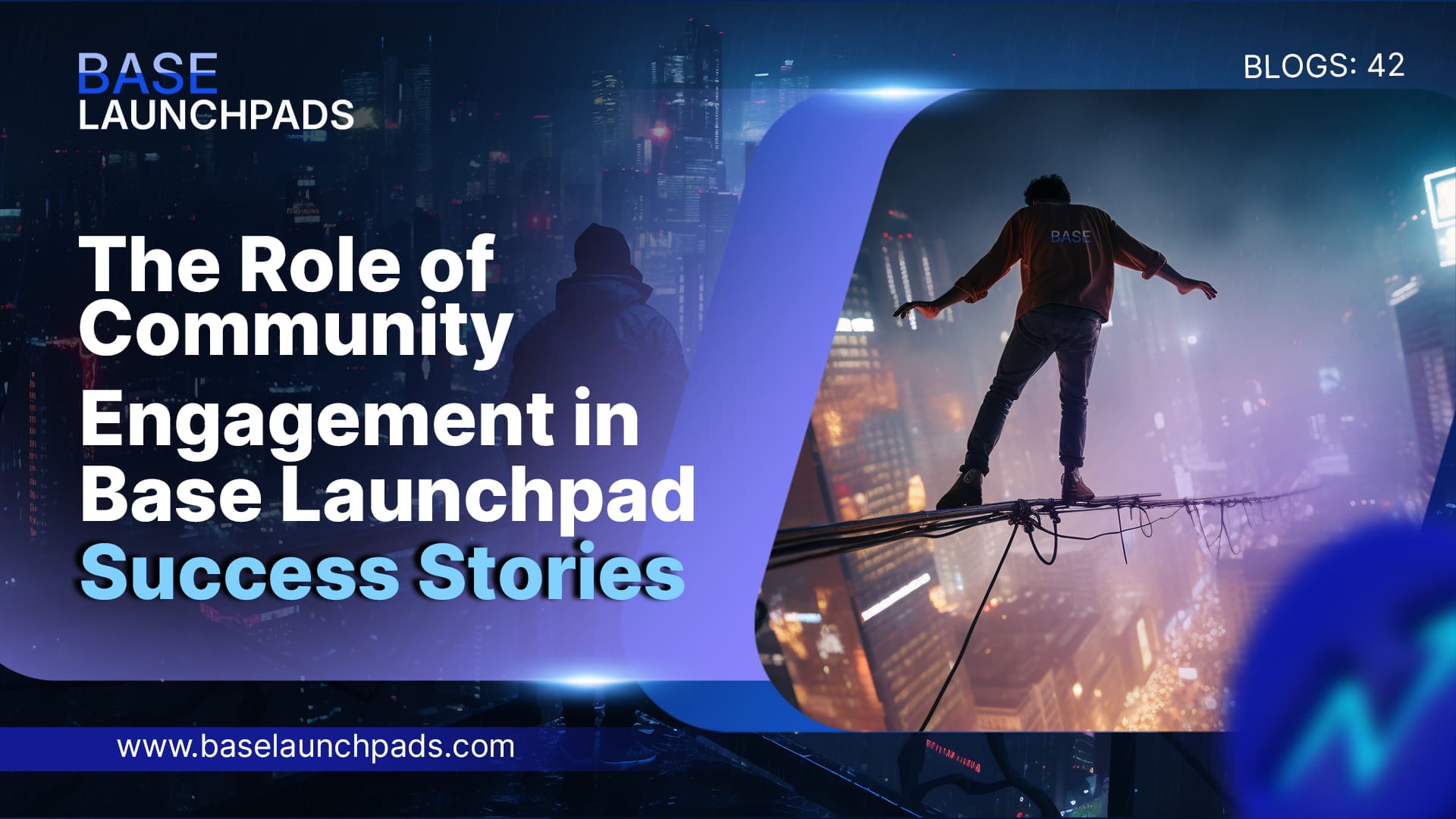August 26, 2024
Revolutionizing Global Supply Chains with Base Blockchain Technology - test
In today’s globalized economy, supply chain management faces numerous challenges, from lack of transparency to inefficiencies in logistics. The Base blockchain, with its robust and scalable infrastructure, offers transformative solutions that can revolutionize how global supply chains operate. This article explores how the Base blockchain is setting new standards for transparency, efficiency, and security in supply chain management.
The Challenge with Current Supply Chains
Modern supply chains are complex networks that span multiple countries and involve countless transactions and interactions. This complexity leads to issues like delayed shipments, fraud, and increased costs—all stemming from a lack of transparency and trust among parties. Additionally, traditional systems are often siloed and prone to errors, making the entire process slower and more susceptible to disruption.
How Base Blockchain Can Help
The Base blockchain offers a decentralized platform that can address many of the intrinsic problems facing today’s supply chains:
- Enhanced Transparency: Every transaction on the blockchain is recorded on a ledger that is immutable and accessible to all parties involved. This transparency helps build trust and reduces disputes over transactions.
- Improved Efficiency: Blockchain technology can automate many of the processes involved in supply chain management through smart contracts. These contracts execute automatically when certain conditions are met, reducing the time and cost associated with manual processing.
- Increased Security: The decentralized nature of blockchain makes it highly resistant to tampering and fraud. Data on the blockchain is secured using advanced cryptographic techniques, ensuring that sensitive information is protected.
Real-World Applications of Base Blockchain in Supply Chains
- Food Safety and Traceability: Companies can use Base blockchain to track the production, handling, and distribution of food products. Consumers can access the entire history of a product, from farm to table, ensuring it meets safety standards.
- Pharmaceuticals Tracking: The pharmaceutical industry can use Base to ensure the authenticity of drugs and prevent the distribution of counterfeit medications.
- Automotive Supply Chain: Automakers can use Base to track the origin and assembly of auto parts, ensuring compliance with safety and quality standards.
Challenges and Considerations
While the potential of Base blockchain in revolutionizing supply chains is immense, there are challenges to widespread adoption. These include the need for industry-wide collaboration, changes to regulatory frameworks, and educating stakeholders about the benefits and operation of blockchain technology.
Conclusion
The Base blockchain holds the potential to redefine global supply chains, making them more transparent, efficient, and secure. As more industries recognize and explore its benefits, we can expect to see profound changes in how products are made, delivered, and consumed.
This comprehensive blog post not only provides insights into the potential applications of the Base blockchain in supply chains but also addresses the broader implications for industries looking to adopt blockchain technology.






